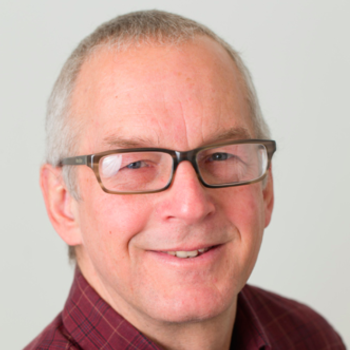Richard Apple

Serving as my uncle’s caregiver taught me how little I knew about taking care of someone with Alzheimer’s. Each day was a new test and learning experience, but I know deep down he appreciated the care. I would not change it for the world.
November 20th, 2019
To say Alzheimer’s disease runs in my family is a massive understatement. The first time I remember it occurring was when both my grandmothers were diagnosed. I decided to research how far back the Apple family battled Alzheimer’s. I was shocked by what I found. Alzheimer’s appears to stretch back nearly 200 years; a diary by an ancestor who came to the United States in the 1830s indicates his mother may have had dementia.
I remember Grandma Apple as a confident, strong woman before she started experiencing Alzheimer’s symptoms. She was well-educated and active in her community, and had a feisty sense of humor. One day, after the diagnosis, it became clear to my family that she could no longer take care of herself. I remember the day when she moved to nursing care. It was very sad for me. But I made a promise to myself: I would do what I could to fight Alzheimer’s when I got a chance.
After Grandma Apple, my uncle was the next to be diagnosed. Serving as my uncle’s caregiver taught me how little I knew about taking care of someone with Alzheimer’s. Each day was a new test and learning experience, but I know deep down he appreciated the care. I would not change it for the world.
After my uncle, another difficult diagnosis occurred: Mom also had Alzheimer’s disease. I was in total shock. She had been the picture of health, walking five miles a day well into her 70s. She had taken care of herself all her life and kept pushing forward with her lifestyle until the disease progression necessitated in-home care and eventually assisted living.
I resolved to do whatever I could to help other families navigate the difficult experience of caring for a loved one with Alzheimer’s. I had a lifetime of experience seeing the disease affect my family. Some families never have to deal with it before the first diagnosis. Knowing I could put my experience to good use, I went to work for the Alzheimer’s Association as a care navigator. That role sparked an interest in clinical trials and research, which I knew were the only way to end this disease. It planted the seeds for my eventual trial participation at Great Lakes Clinical Trials once I retired.
First, I was screened for participation in the trial program. It was an intense process. When they called me to come back in, I had some thoughts about not going. But then I reaffirmed in my mind that I owed it to struggling families to participate in the research.
Based on the study screening tests, my doctor informed me I had elevated amyloid levels in my brain, putting me at high risk for developing the symptoms of Alzheimer’s. I thought, thank goodness I decided to stick through the screening—I always feel like it’s better to know than not know. Currently, I am thrilled to contribute to research, and am optimistic about the future. Part of me feels like we’re on the cusp of a breakthrough with so many different research studies going on. Of course, nobody knows which study will be the breakthrough, which is why we need as many participants as possible.
The kindness, professionalism, and camaraderie of the team at Great Lakes Clinical Trials have given me a greater picture of my overall health. My positive experience at Great Lakes inspired me to encourage everyone I know to get involved in a clinical trial. It gives you a sense of purpose.
If you participate, you are likely to get the drug sooner, even if you are on placebo during the study. It would be very positive to postpone or avoid what I went through with my family. For now, I’m optimistic a breakthrough is on the way and am taking time to soak up each moment I have. Especially those with my grandkids.
Richard Apple lost many members of his family to Alzheimer’s disease. Now he is now a participant in clinical trials and the recipient of the Global Alzheimer’s Platform Foundation Citizen Scientist Champion® Award.